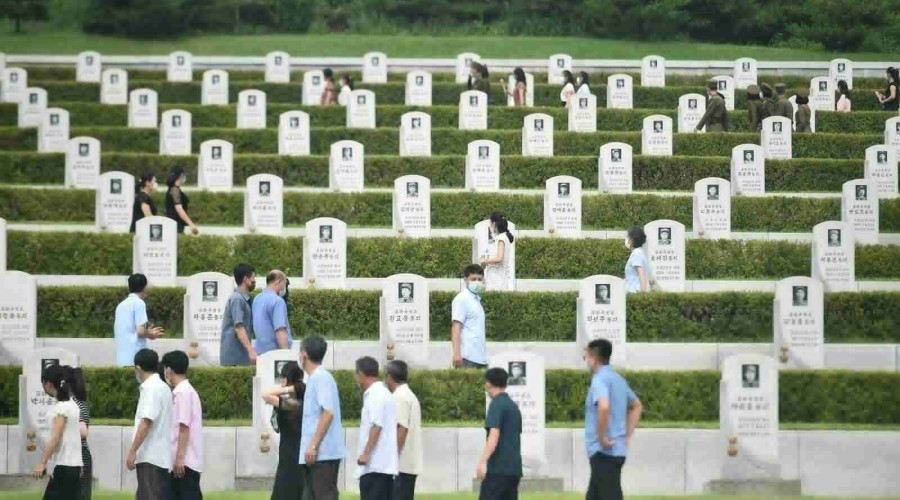'Turkey chose to join Western bloc by entering Korean War'
He stressed that North Korea is using its nuclear and ballistic missile program

Turkey's decision to send its troops to Korea represented a strategic diplomatic choice to join the Western bloc and this decision has greatly contributed to the strengthening of the state structure, Turkey's Ambassador to Seoul Ersin Erçin said Tuesday, Qazet.az reports.
It has been 69 years since the Korean War ended on the field, though it technically continues since a peace agreement to formally end the war was never signed.
Erçin told Anadolu Agency (AA) that Turkey showed great diplomatic dexterity to avoid participating in World War II.
"Resolution 83, adopted by the U.N. Security Council on June 27, 1950, inviting member states to join the war to help South Korea, came to the fore at such a critical time for Turkey. The government of the period responded positively to the call of the Security Council and decided to send a brigade to Korea. The decision to send troops abroad for the first time in the history of the Republic paved the way for our membership in NATO in 1952," the ambassador explained.
Stating that Turkey made the choice to join the Western alliance with its decision to send troops to Korea, Erçin said that this decision made a great contribution to strengthening the state structure.
Erçin highlighted that Turkey went beyond providing just military support to the peninsula. "Unlike the other 20 countries that participated in the war under the U.N. command, Turkish military units not only showed great heroism in Korea, but also provided humanitarian aid to Korean civilians without instruction," he said, noting the medical services offered to the sick and injured as well as the food, clothing and educational support provided to orphans. "It puts our country in a different position in the eyes of the Korean people than other countries participating in the war."
Stating that the cease-fire agreement signed on July 27, 1953 was not signed by South Korea, Ambassador Erçin added: "Although it was accepted in the U.N. General Assembly on Aug. 28, 1953, the fact that South Korea, which did not sign this agreement, is technically still in a state of war with the North, further stretches the atmosphere of the Cold War that has been going on for 70 years on the Korean Peninsula. As a matter of fact, one of the most important issues discussed in the third peace attempt between North Korea, the United States and South Korea, which started with great hopes on Jan. 1, 2018, continued for two years with three summits and many technical meetings, and ended in failure, was the signing of a declaration that would legally end the war. The proposal to sign a declaration to end the state of technical warfare went off the agenda with the inauguration of the (South Korean President) Yoon Suk-yeol administration on May 10, 2022 in Korea."
